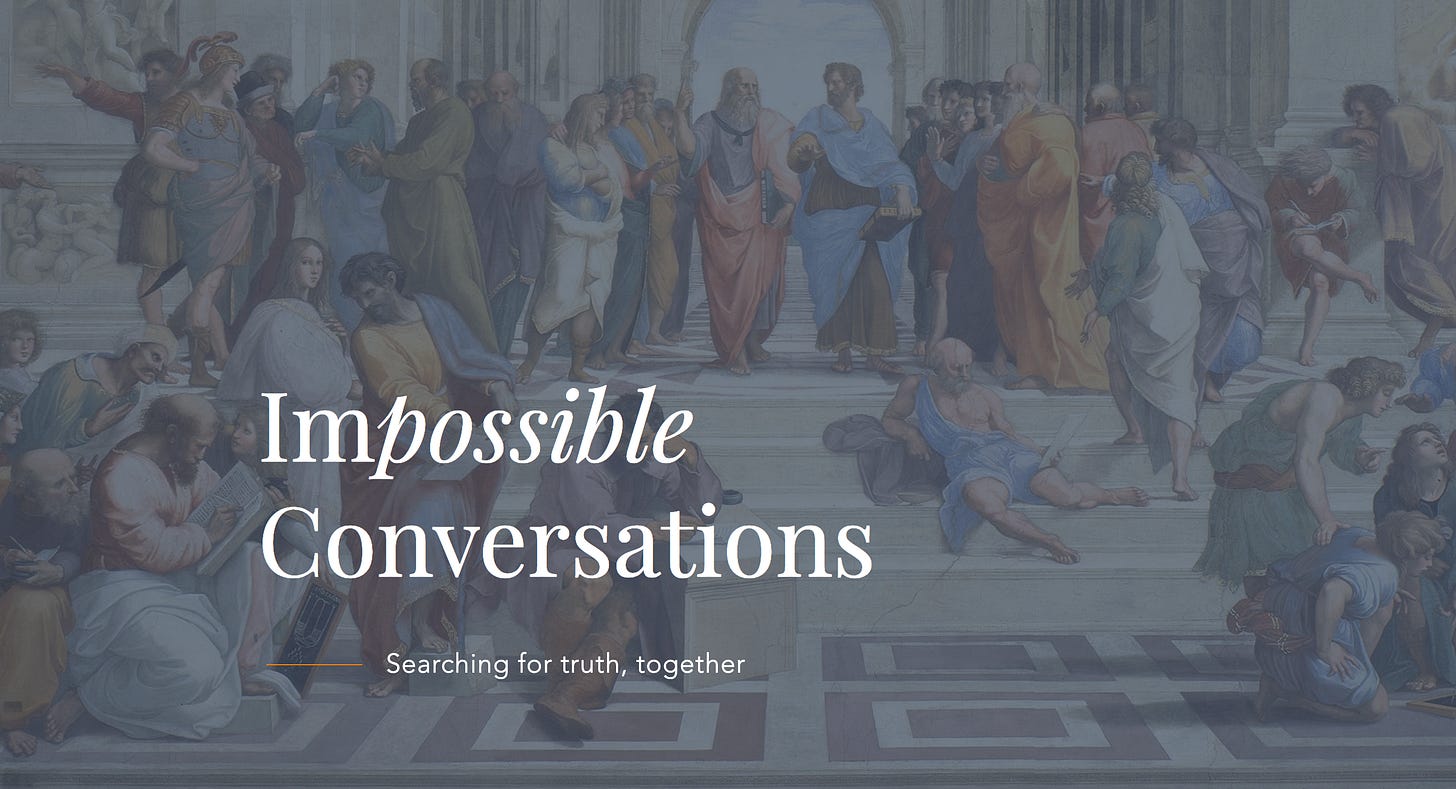An alternative to zingers
I’ve noticed a new interesting trend in online discourse that gives me a lot of hope. I’ve already mentioned Change A View a couple times here, which I continue to think is a direction with a ton of promise when it comes to increasing the productivity of disagreements online.
I also recently learned about the Adversarial Collaborations, which are described like this:
An adversarial collaboration is an effort by two people with opposing opinions on a topic to collaborate on a summary of the evidence. Just as we hope that a trial with both prosecutor and defense will give the jury a balanced view of the evidence for and against a suspect, so we hope an adversarial collaboration will give readers a balanced view of evidence for and against some thesis. It’s typically done for scientific papers, but I’m excited about the possibility of people applying the concept to to less formal writeups as well.
For example, a pro-gun activist might collaborate with an anti-gun activist to write a joint article on the evidence for whether gun control saves lives. We trust each person to make sure the best evidence for their respective side is included. We also trust that they’ll fact-check each other and make sure there aren’t any errors or falsehoods in the final document. There might be a lot of debating, but it will happen on high-bandwidth informal channels behind the scenes and nobody will feel like they have tailor their debating to sounding good for an audience.
I LOVE this idea, obviously. And have found someone willing to collaborate with me on an article about gun violence and gun policy. We were beginning to work on this in private when we discovered yet another super interesting campaign for Impossible Conversations.

Impossible Conversations is a competition to encourage difficult conversations in good faith. Winners receive a share of $2,500 in prize money, publication to Areo Magazine, and invitations to appear as a guest on several podcasts.
To enter, simply have a written conversation on Letter before 3rd Nov 2019.
Letter.wiki is a new product that basically functions as a public pen pal site, where two people can have a conversation in public about any topic. It’s really well-suited for long-form, thoughtful disagreements, and I encourage everyone to sign up.

BJ Campbell is the fellow I’ve been planning this adversarial collaboration with, and we thought it would be interesting to have our conversation about it publicly. You can read it in full here. BJ is pretty well-versed in all the gun data and definitely comes from a different perspective from me, but there are already a couple examples of times where it’s become clear to me that we’re not battling each other, but rather working together towards collective understanding.
One was in letter #5 when he voluntarily corrected his own earlier statement about comparisons between violence in the UK and in the US:
I need to make some corrections to my prior letter. I've been digging into those violent crime rate numbers, which I admit I found unbelievable, and I think I sourced some of them sloppily. It appears that the UK number was based on…
Another was in letter #7 where he pointed out a flaw in my own calculations (where I referenced how the duct tape holding my argument together was beginning to thin) but then offered:
In the interest of offering solutions to the actual primary problem, which is male suicide, I want to hand you some extra duct tape to use, and we're going to find this duct tape from the other analysis perspective…
In my view, these are golden nuggets worth much more than points I might achieve by delivering zingers. A zinger is a pointed witty remark or retort meant to score some points with your own side. They’re less about increasing understanding across divides, and more about making the other side look bad. On the path towards learning how to have more productive disagreements, part of the challenge is finding these small rewards in a conversation that can feed us as we go along. There’s no denying that delivering zingers and gotchas is a powerful emotional motivator, because it feels good even as you push people further and further away from agreement. They’re funny. But they’re not helpful.
For those interested in trying to re-wire some conversational habits towards productive disagreement, I highly recommend testing the waters with an adversarial collaboration or impossible conversation with someone you respect but disagree with. If you do one, let me know about it!
Buster

